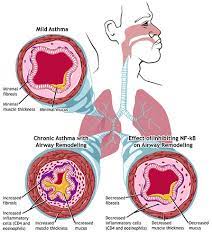COUGH SYRUPS
Cough syrups typically contain ingredients that work through different mechanisms to relieve cough and respiratory symptoms. The specific mechanism of action can vary depending on the active ingredients present in the cough syrup. Here are some common mechanisms of action for different types of cough syrups:
- Expectorants: Cough syrups containing expectorants, such as guaifenesin, work by thinning and loosening mucus in the respiratory tract. This helps to facilitate the clearance of mucus and phlegm, making it easier to cough up and expel. Guaifenesin works by increasing the volume and reducing the viscosity of respiratory secretions, allowing them to be expelled more effectively.
- Suppressants: Cough syrups that contain cough suppressants, such as codeine or dextromethorphan, work by suppressing the cough reflex in the brain. These ingredients act on the cough center in the brain to reduce the urge to cough. They are particularly useful for dry, non-productive coughs or when coughing becomes excessive or disruptive.
- Antihistamines: Some cough syrups contain antihistamines like diphenhydramine or chlorpheniramine. While primarily used for their antihistamine properties, they also possess mild cough-suppressing effects. Antihistamines can help relieve cough caused by allergies or upper respiratory infections by reducing inflammation and irritation in the respiratory tract.
- Bronchodilators: Certain cough syrups may include bronchodilators like ephedrine or pseudoephedrine. These medications work by relaxing and dilating the airway muscles, which can help alleviate symptoms of cough and congestion associated with conditions like asthma, bronchitis, or allergies. Bronchodilators are particularly effective for coughs accompanied by wheezing or difficulty breathing.
- Local Anesthetics: Some cough syrups contain local anesthetics such as benzocaine or lidocaine. These ingredients can temporarily numb the throat and suppress the urge to cough. They provide local relief by numbing the irritated throat tissues, reducing the cough reflex.
It’s important to note that while cough syrups can provide symptomatic relief, they do not address the underlying cause of the cough. If a cough persists or is accompanied by other concerning symptoms, it’s advisable to consult a healthcare professional for a proper diagnosis and appropriate treatment.
Continuous use of cough syrups, especially those containing certain ingredients, can lead to various complications. Here are some potential complications associated with prolonged or excessive use of cough syrups:
- Drug Dependency: Certain cough syrups contain codeine or other opioids, which can be addictive. Prolonged use of these medications can lead to physical and psychological dependence, making it difficult to stop using them without experiencing withdrawal symptoms.
- Respiratory Depression: Opioid-based cough syrups can cause respiratory depression, which is a significant decrease in breathing rate and depth. This effect can be dangerous, particularly when the medication is taken in high doses or combined with other substances that depress the central nervous system, such as alcohol or benzodiazepines. Severe respiratory depression can be life-threatening.
- Sedation and Drowsiness: Many cough syrups contain sedating ingredients like antihistamines or opioids. Prolonged use or excessive doses can lead to persistent drowsiness, dizziness, and impaired cognitive function, affecting daily activities and increasing the risk of accidents.
- Gastrointestinal Effects: Some cough syrups contain ingredients like guaifenesin, which can cause gastrointestinal side effects such as nausea, vomiting, and stomach upset. Long-term use of these medications may exacerbate these symptoms or cause additional digestive disturbances.
- Liver Damage: Certain cough syrups contain high levels of acetaminophen (paracetamol), which can be toxic to the liver if taken in excessive doses or for prolonged periods. Liver damage or failure can occur as a result, particularly when combined with other medications containing acetaminophen or consumed with alcohol.
- Allergic Reactions: Cough syrups may contain various additives or ingredients that can trigger allergic reactions in susceptible individuals. Symptoms can range from mild skin rashes to severe allergic reactions, including difficulty breathing, swelling, and anaphylaxis, which is a life-threatening condition.
- Medication Interactions: Some cough syrups may interact with other medications, including prescription drugs and over-the-counter products. These interactions can potentiate side effects, decrease the effectiveness of certain medications, or cause unexpected adverse reactions.
It’s important to note that not all cough syrups or their ingredients cause these complications, and appropriate use of cough syrups as directed by a healthcare professional is generally safe. However, prolonged or excessive use without medical supervision can increase the risk of experiencing these complications. It is always advisable to consult a healthcare provider before using any medication long-term or if you have concerns about potential side effects.





